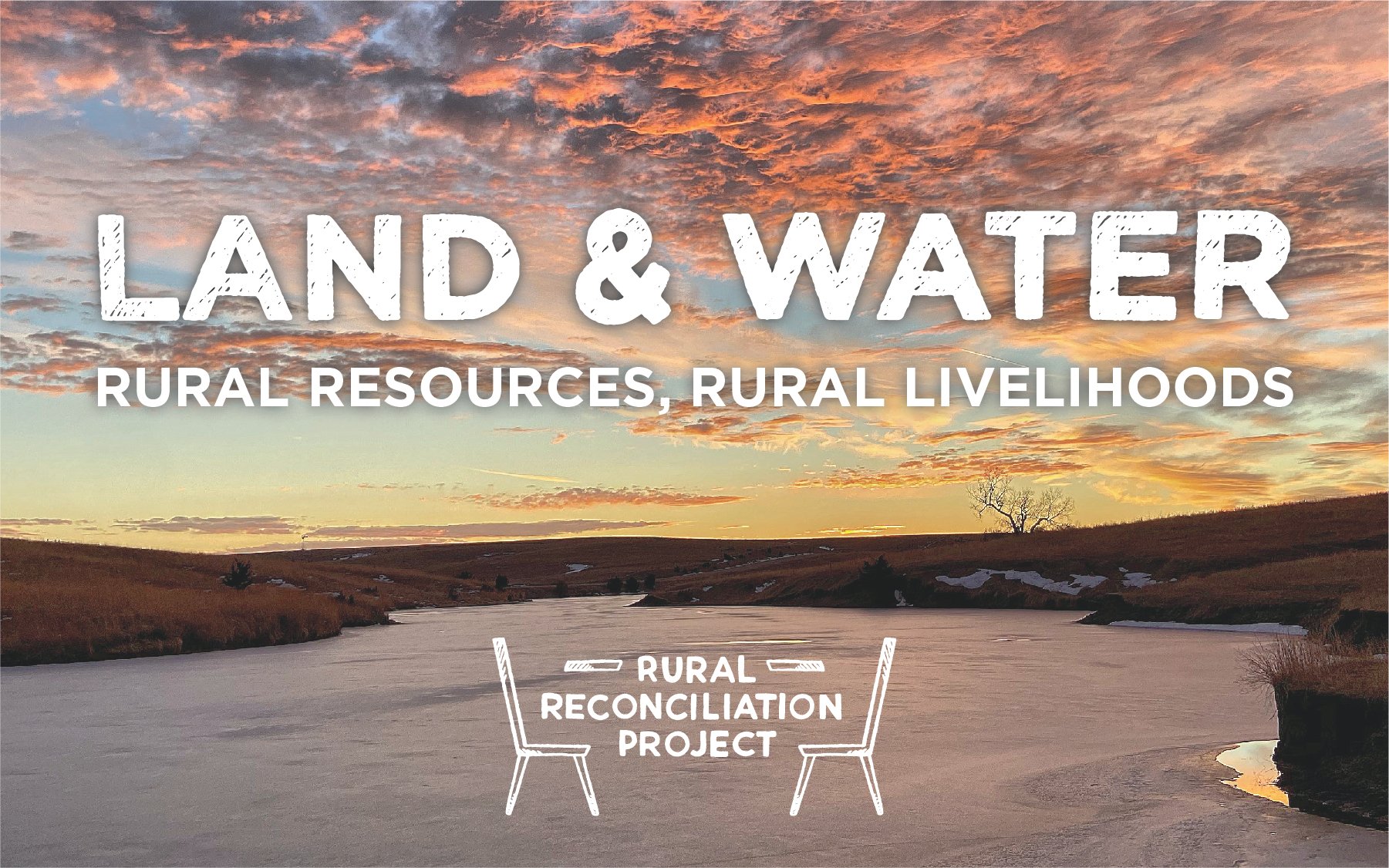Call for Proposals: Who Owns Rural America?
Interdisciplinary Land & Water Workshop
In-person in Lincoln, Nebraska
Primary Workshop Date: July 12, 2023
The Rural Reconciliation Project invites proposals for an in-person workshop exploring, from interdisciplinary perspectives, who owns rural America, and why. Submissions are due March 1, 2023, with decisions expected soon thereafter. All details follow. For questions, please contact Professor Jessica Shoemaker.
Please note that, although the primary workshop date is July 12, 2023, we anticipate possibly extending this schedule both before and after this date. For example, we are exploring an optional pre-workshop field trip on July 11, 2023, and—depending on interest and availability—may continue roundtable discussions into July 13, 2023.
-
The central question of this workshop is how land, water, and other natural resources are being reshaped – and their ownership reimagined – in a time of rapid climate change, growing inequality, and shifting racial and other demographics across rural spaces.
Important recent scholarship has documented growing “land grab” dynamics across North America, including not only the financialization of farmland but also related changes in housing, water, and other resource markets. This workshop will probe the causes, consequences, and potential responses to the growing divide between local resources and local livelihoods.
Although this workshop is directed principally toward these landscape changes as they are encountered across rural America, we actively invite and encourage related work on commodification, concentration, and other changes in land and natural-resource relations in other contexts and spaces.
A range of research methodologies and approaches could be deployed to address these land and resource dynamics. A primary objective of this workshop is to uniquely connect in direct conversation social scientists working in related disciplines (such as geography, anthropology, sociology, history, political science, and economics) with critical legal scholars working in property, land use, water law, natural resources, and related disciplines.
To that end, confirmed participants include:
• Vanessa Casado Pérez, Professor of Law and Research Associate Professor of Agricultural Economics, Texas A&M University
• Madeleine Fairbairn, Associate Professor of Environmental Studies, UC Santa Cruz
• Levi Van Sant, Assistant Professor, School of Integrative Studies, George Mason University
• Anthony Schutz, Associate Professor of Law, University of Nebraska College of Law
• Jessica A. Shoemaker, Professor of Law, University of Nebraska College of Law
-
The workshop format will include time for each participant to introduce briefly their existing work and expertise and, if desired, to receive feedback on—and engage in formative discussion around—an in-progress or early-stage research question or idea. Applicants may propose to share any type of early-stage draft related to these workshop themes for circulation to workshop participants in advance of the workshop: a research prospectus, outline, or abstract; a book prospectus; an article manuscript; or even a grant proposal.
Scholars already actively working on these research questions are also invited to propose participation without a draft for workshop, if they are so inclined, and may participate as valuable workshop commentators or in more open-ended roundtable and workshop discussions on key questions and future research trajectories.
-
Interested participants should email (1) a current CV or short informal biography that highlights the scholar’s expertise and current related work and (2) if applicable, a brief abstract of what they propose to submit for feedback at the workshop (no more than 500 words). For scholars who seek to participate without workshopping a draft of their own in-progress work, a short statement of what they hope to gain from, or contribute to, the workshop would be helpful.
Direct submissions to Jess Shoemaker at this linked email.
Applications are due by March 1, 2023.
The goal of the workshop is to include a diverse range of scholars at all career stages and across disciplinary and geographic boundaries, and participants will be selected to best facilitate a robust discussion and active research engagement.
No remote or hybrid participation is planned at this time, though of course we will monitor and respond to any public-health or other changing conditions, if needed.
-
Interested participants must respond to this Call for Proposals by March 1, 2023, and decisions will be made soon thereafter.
Once accepted, drafts for circulation to workshop participants will be due June 15, 2023.
The primary workshop discussion will occur on July 12, 2023, in Lincoln, Nebraska.
Depending on interest and availability, an optional field trip to the nearby Homestead National Historical Park may be arranged before the workshop on July 11, 2023.
If participation warrants, further conversation and roundtable discussion may be continued into July 13, 2023.
-
At this time, we expect workshop participants will provide their own travel to Lincoln and fund their own lodging while here, though we plan to arrange for discounted accommodation options for workshop participants in a convenient hotel block.
The Rural Reconciliation Project will provide workshop space and hosting services, some meals during the workshop, and assistance with any local travel (locally to or from the workshop or meal spaces, if needed, and any field-trip offerings provided).
If this self-funding requirement presents a significant hardship, please reach out.
We also acknowledge funding from the Carnegie Corporation of New York that will help make this event possible, though all statements made and views expressed are solely the responsibility of the authors and presenters.
-
Any questions about the workshop can be directed to Jess Shoemaker at this linked email.
For convenience, a PDF copy of this Call For Proposals is also available for download here.
